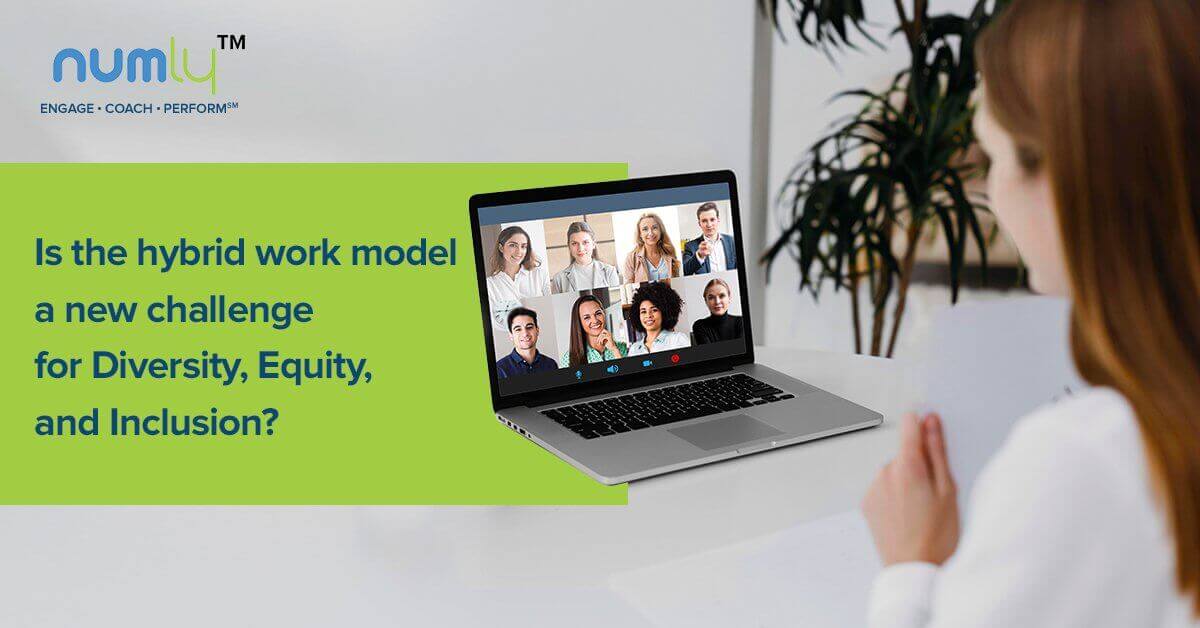The threat because of which we retreated in haste, from office buildings to kitchen tables or home offices, at the onset of the pandemic, seems to be abating. Today people are gearing to return to work as the pandemic comes under control. However, the reactive stance that businesses assumed at the onset of the pandemic, no longer remains a valid strategy to design the hybrid workplace.
As the world of work moves towards a hybrid avatar, seamlessly amalgamating work from home with on-premises, organizations are moving to create transformational strategies to ensure business success in the future. The future of work is now centered on how you work. Not where you do it from.
The hybrid workplace needs a transformational strategy – one that is intentional and purpose-driven. This strategy will remain incomplete if enterprises do not account for the impact of this world of work on diversity, equity, and inclusion initiatives.
The extraordinary circumstances caused by the pandemic threw greater light on the racial and societal inequities in our society. While enterprises were hiring and were greatly focused on diversity, the move to the hybrid workplace has shifted priorities.
A recently concluded report on workplace culture and inclusion shows that
- Only 53% of employees rate their workplace diversity, equity, and inclusiveness culture as healthy.
- 58% feel that their organizations still have undefined diversity and inclusion goals.
- More than 67% feel that their organizational leaders need to do more to drive diversity, equity, and inclusion across the organization.
Diversity, equity, and inclusion initiatives are playing a big role in enterprise transformation. A report from McKinsey highlights how diverse and more inclusive organizations are more profitable than those that are not. While diversity, equity, and inclusion initiatives are good for business, the time to do more than just pay lip service to these initiatives is now.
Why Diversity, Equity and Inclusion matter even more now
COVID-19 gave organizations a chance to evaluate and reconsider what workplaces should look like. Ushering in the Future of Work and driving the focus to build a hybrid workplace demands a technological transformation to ease the logistical nightmare. But the hybrid workplace also shows the promise of being a cultural facilitator. This is because the work environment becomes more boundary-less while bringing in geographically distant workers closer.
Thus, to access a greater talent market and to support geographically dispersed teams, bringing strategic focus on designing relevant diversity, equity, and inclusion initiatives becomes paramount.
From Technological Hybridity to Cultural Hybridity
In the hybrid workplace, employing technological hybridity will be commonplace. New platforms, tools, and technologies will drive better workflows and processes. And just like this technological hybridity, it also demands a more intentional move to enable the coexistence of multiple individual identities. This becomes especially relevant in today’s context where employees desire a greater alignment of individual identities and the value system of the organization.
Organizations need to work intentionally towards creating an environment that fosters and encourages inclusion, and diversity and promotes equity.
Leveling the playing field is essential
At present, most organizations are focused on managing the day-to-day challenges of managing remote and in-person teams. However, along with this, they must now focus on creating a playing field that is even and fair to all. And we cannot create an even playing field unless we address the unconscious biases that may be at work dividing in-person and remote employees and those coming from marginalized and underserved communities.
Accounting for the need of all employees is mandatory
Diversity, inclusion, and equity are the key components that ensure that organizations function better and innovate faster. As the workplace becomes hybrid and relies more on technology, organizations need to reskill and adapt to the demands of digital transformation to help employees manage the climate of change. This reskilling and upskilling extend to power skills that drive collaboration and innovation while accounting for the needs of ‘all’ employees.
Undoing unconscious bias is imperative for engagement
The hybrid workplace will need to focus heavily on undoing unconscious biases and work towards becoming more inclusive to drive transformational organizational outcomes. A focused effort into diversity and inclusion unlocks new opportunities to accelerate reskilling and simultaneously nurturing a mindset of continuous learning.
By becoming more intentional about their diversity, inclusion, and equity strategy, organizations ensure that they level the playing field and allow all employees equal opportunities. These moves drive better employee engagement as employees feel that the organization is invested in their growth. This also strengthens the organization’s ability to manage change and foster growth. With time, the organization becomes more inclusive and diverse.
How Peer Coaching Can Help
Just like how technology is driving the workplace, technology can drive diversity, equity, and inclusion initiatives as well. Moving towards a culture focused on continuous learning leveraging peer coaching can be a strategic starting point for the same. After all, with knowledge comes power.
Peer coaching is an effective medium to change unconscious bias. That is because bias can only be removed by virtue of continuous and contextual interactions to drive behavioral change. Employing a technology-powered peer coaching platform can help employees identify their growth needs and address challenges that impede professional progress.
The opportunity to access coaches to drive growth makes sure that the people in the D&I umbrella are not struggling to identify growth pathways, can easily navigate the organizational network, and build trust bridges across the organization.
The rules of engagement have to evolve in a hybrid workplace. We can no longer afford to take a cut-and-paste approach to important initiatives such as diversity, inclusion, and equity. Those organizations who take data-backed and technology-powered approaches for their initiatives will be more successful in their efforts simply because their efforts will be more structured, organized, contextual, and relevant to the workforce.
Connect with us to see how we can supercharge your diversity, inclusion, and equity initiatives with our AI-powered coaching platform.

